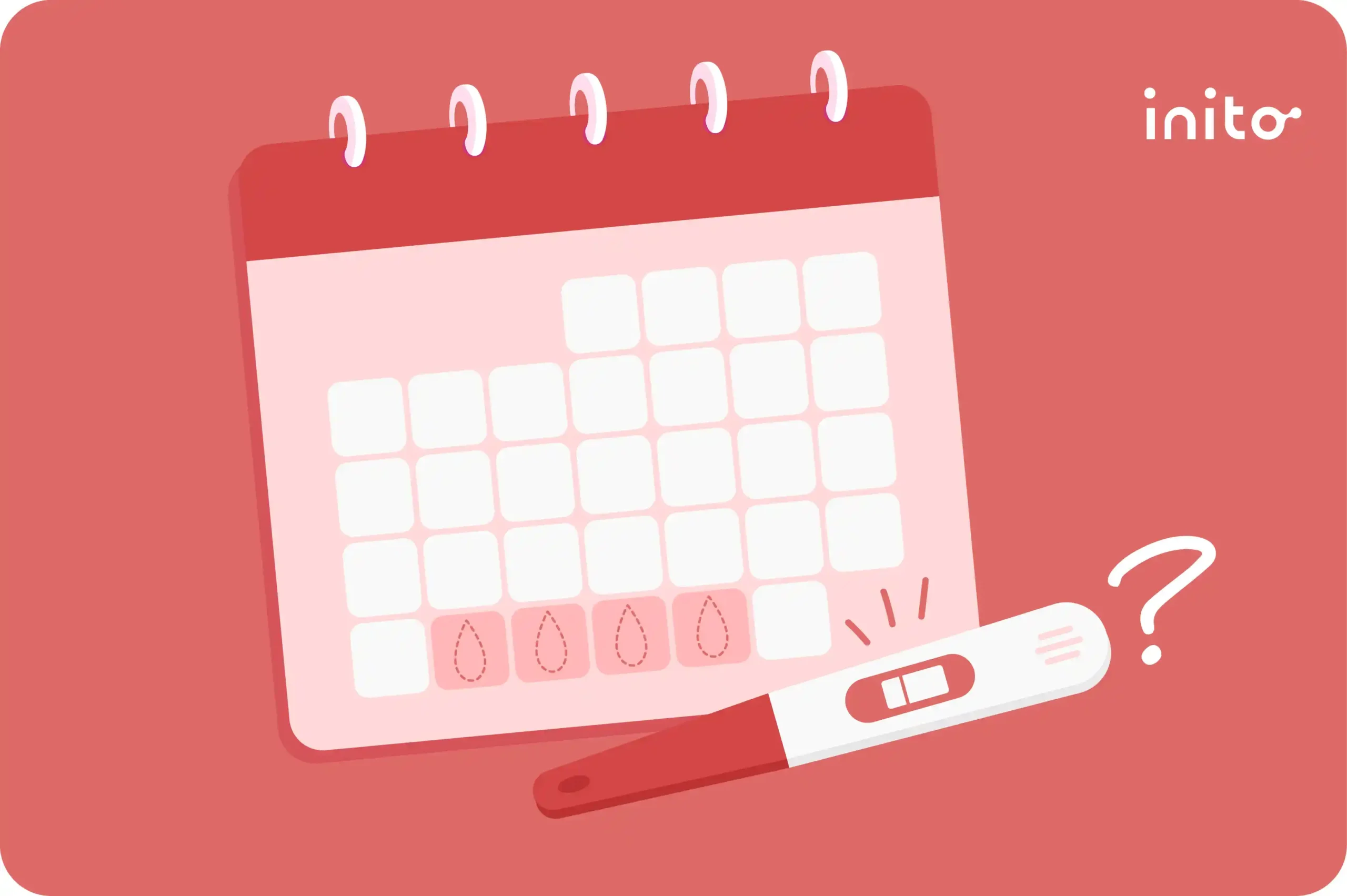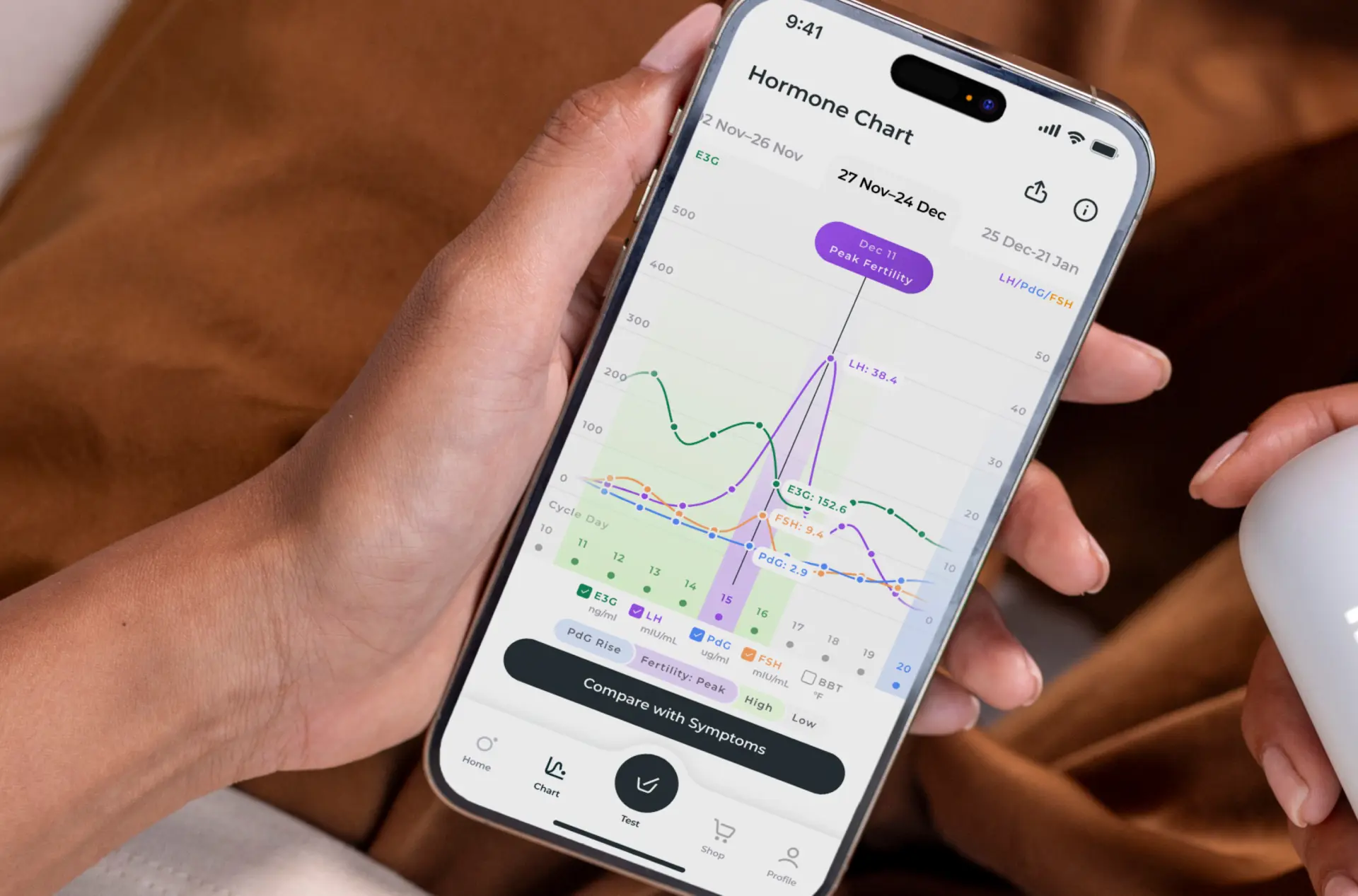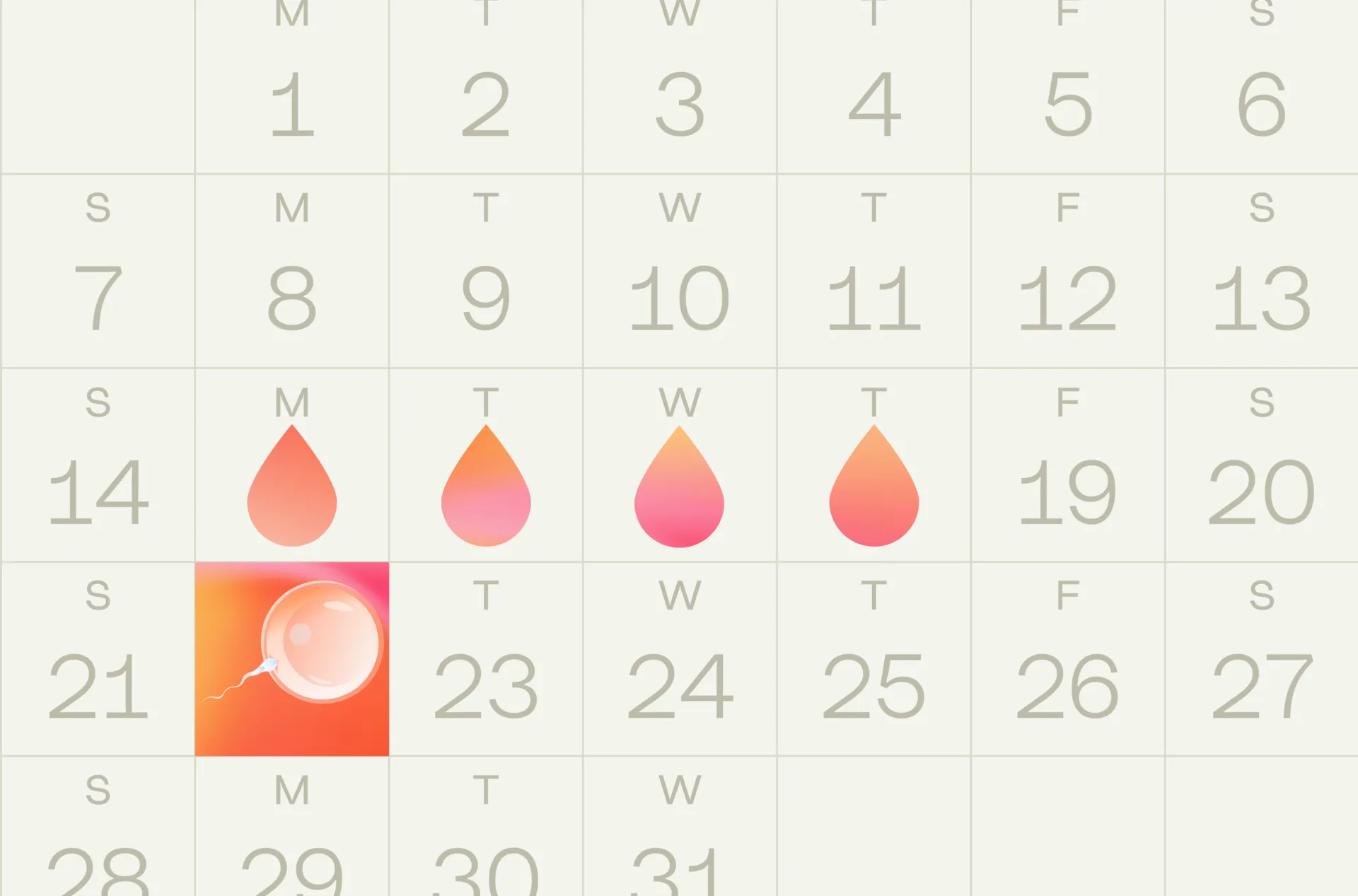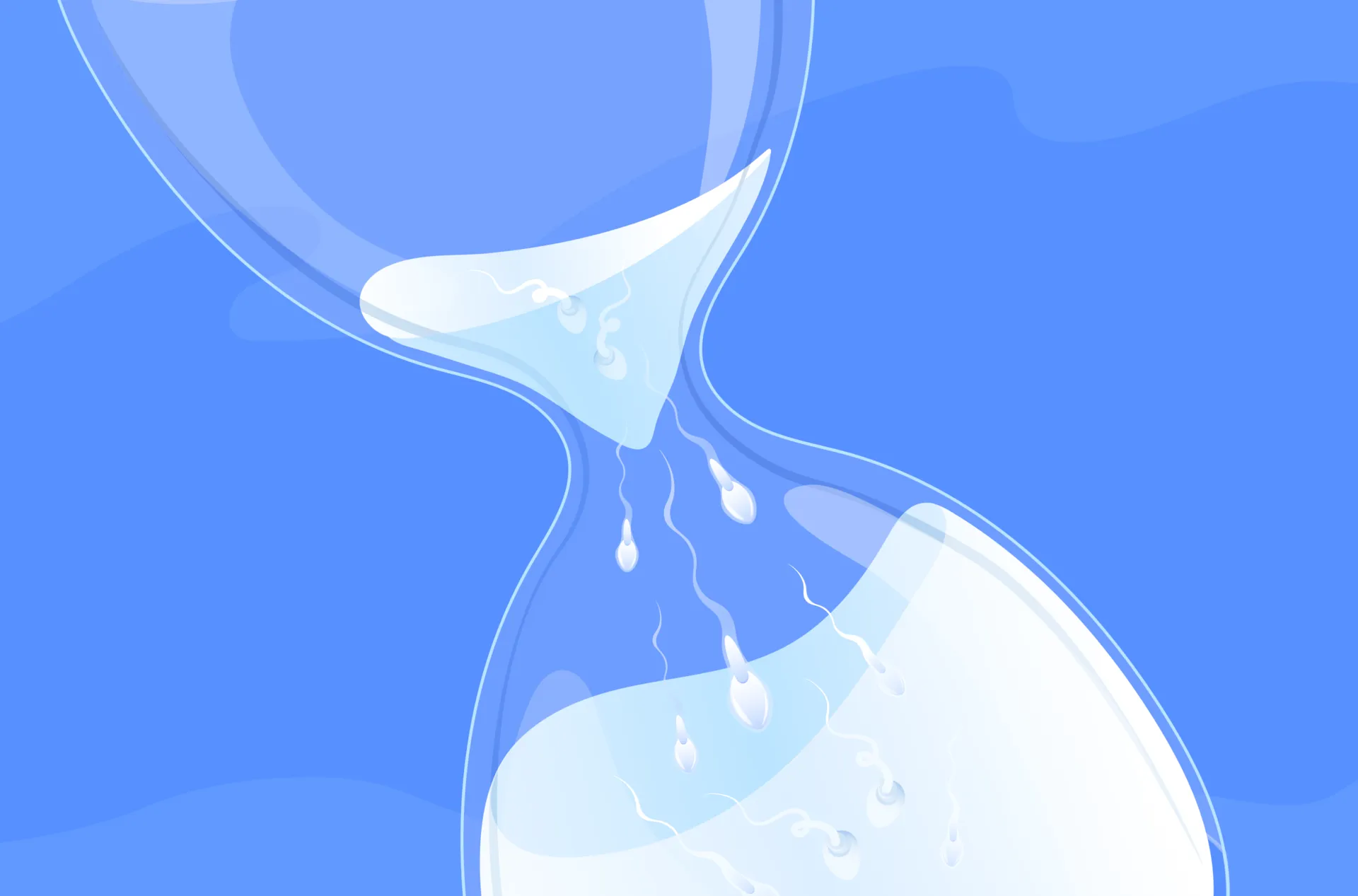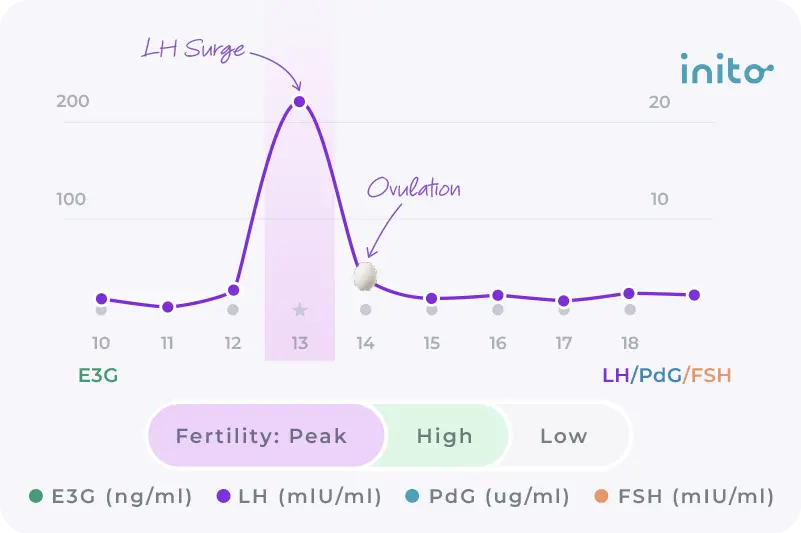Content table
Pregnancy is not the only reason you may have a late or missed period.
Many factors, such as underlying conditions and lifestyle factors, can affect your cycle length.
So, if your period is late but you’re not pregnant, you may wonder, “How long is it normal for my period to be late? Should I be worried?”
The short answer is your period should start 21-35 days within your last period if you aren’t pregnant and don’t have an underlying health condition.
If not, there may be unchecked conditions causing late periods.
Read on to find out more!
Key takeaways:
- If you have regular cycles and haven’t gotten your period within 7-9 days of the expected date, it might be late.
- If you haven’t gotten a period in more than 6 weeks, it may be a missed period.
- Your period should start within 21-35 days of your last period if you aren’t pregnant, have regular cycles and don’t have an underlying health condition.
- To rule out pregnancy, wait to take a pregnancy test 1-2 weeks after your expected period. You’re most likely not pregnant if you get a negative test after 2 weeks.
- Causes of a late period include miscalculating your period date, chemical pregnancy, anovulation, hypothyroidism, stress, and excessive exercise.
- Reach out to your doctor if you still don’t have a period within 6 weeks of your previous cycle.
What is a delayed or missed period?

A delayed period occurs when you have regular cycles and don’t get your period within 7-9 days of the expected date. And a missed period is when you haven’t gotten a period in more than 6 weeks.
However, these definitions won’t work for everyone.
Irregular menstrual cycles or conditions like Polycystic Ovary Syndrome (PCOS) can impact how you define late or missed periods.
For instance, if you often have a 45-day cycle, you won’t bat an eye if your period hasn’t arrived by cycle day (CD) 35. But if you have a 28-day cycle, you’d probably be pretty concerned if your period hasn’t shown up by CD 35!
You can see that the definition of late periods is subjective based on your menstrual cycle.
What can be the maximum delay in periods if I’m not pregnant?
Your period should start 21-35 days within your last period if you aren’t pregnant and don’t have an underlying health condition.
To rule out pregnancy, take a pregnancy test. However, take the test on the right day and at the right time to get an accurate result.
- Take the pregnancy test 1-2 weeks after your expected period. You probably aren’t pregnant if you get a negative test after 2 weeks.
- Test at 6-12 DPO (Days Past Ovulation) as implantation occurs around the same time. If you test too soon after implantation, you won’t get a positive result even if you are pregnant because your hCG levels won’t meet the pregnancy test threshold.
- Follow the test manufacturer’s instructions with first-morning urine on the first day after your missed period.
- Contact your doctor if you still haven’t gotten your period after 2 weeks and your pregnancy test is negative.
See how your hormone chart might look like!
Answer some questions to help us provide you a free personalized hormone chart customized to your hormonal health and conditions
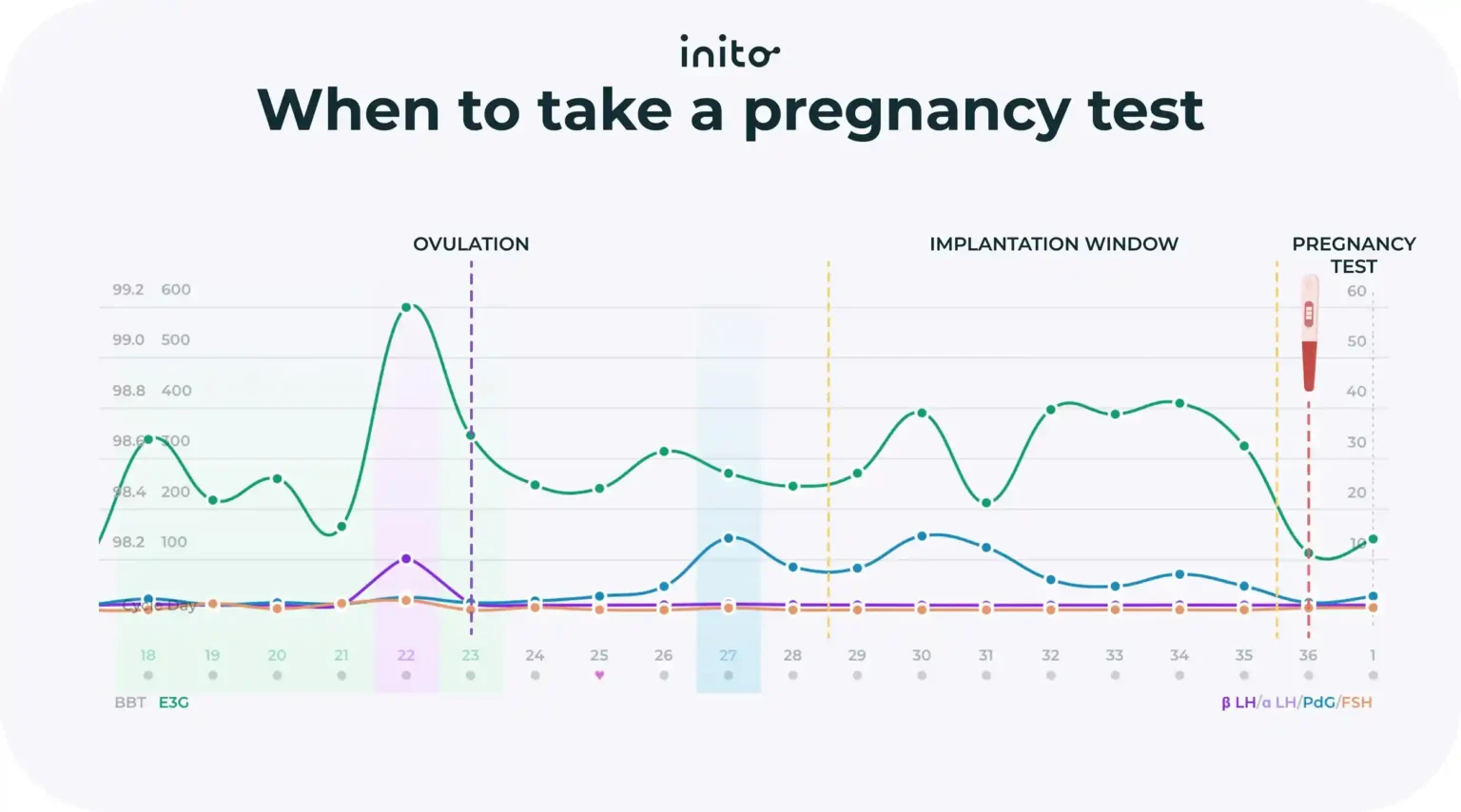
If you suspect you are pregnant but your pregnancy test is negative, you may have tested on the wrong day.
Urine pregnancy tests measure the amount of hCG in your urine. hCG is the hormone the placenta secretes during pregnancy. Pregnancy tests, on average, require at least 20-25 mIU/mL to show a positive result.
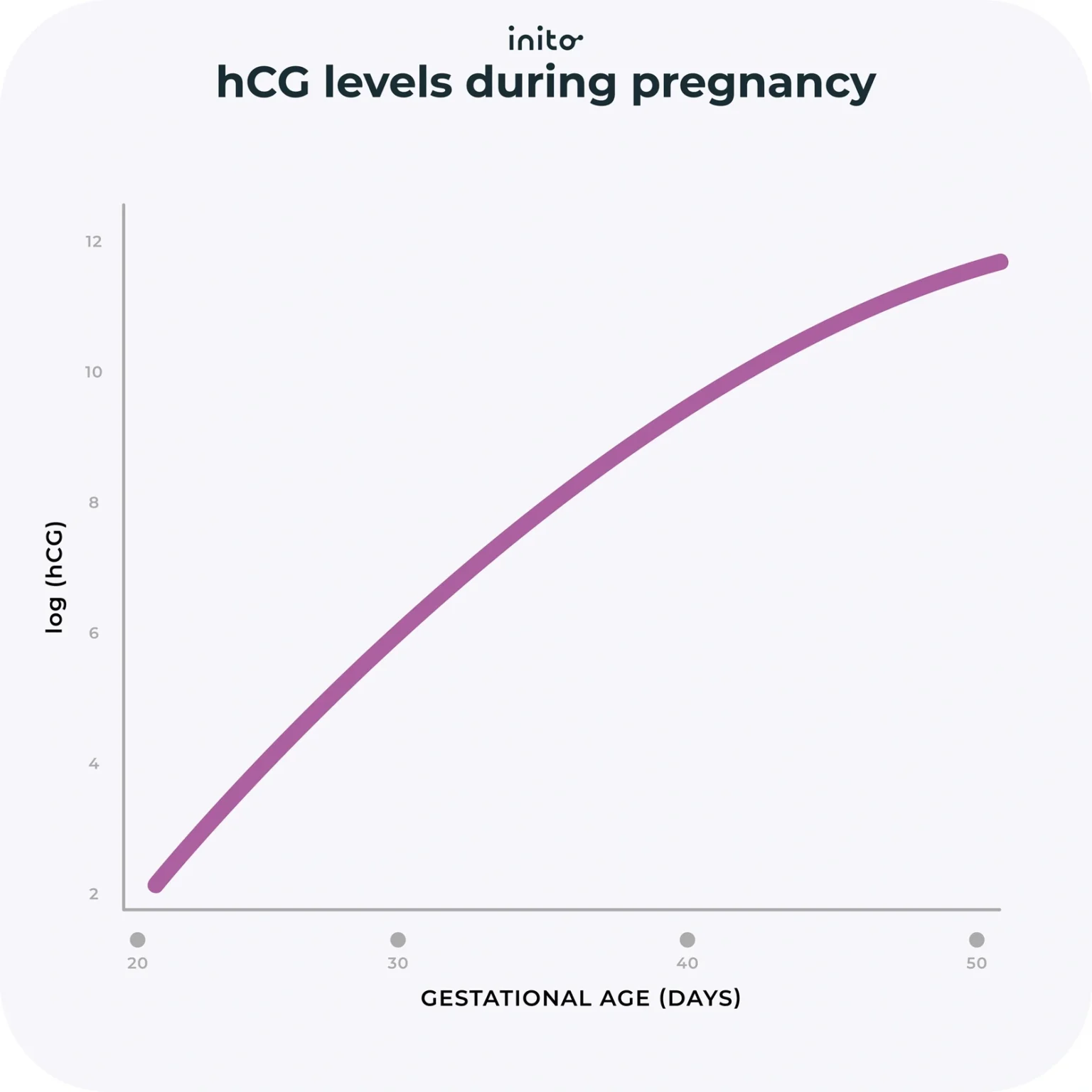
But it takes time for your hCG levels to rise. From the time of implantation, hCG levels double approximately every 48 hours. Implantation usually occurs around 6-12 DPO. If you test too soon after implantation you won’t get a positive result even if you are pregnant because your hCG levels haven’t met the threshold of the pregnancy test.
To avoid inaccurate results, wait to take a pregnancy test 1-2 weeks after your expected period.
You probably aren’t pregnant if you get a negative test after 2 weeks. At-home pregnancy tests are 99% accurate when used correctly.
Contact your doctor if you still haven’t gotten your period after 2 weeks and your pregnancy test is negative.
My pregnancy test is still negative, but I haven’t gotten my period yet. Why?
Your period could be late due to a multitude of reasons. This could be because of a couple of reasons:
- Your period is not actually late
- There’s an underlying condition at play
- Your period is not actually late (a.k.a. you may not be tracking your cycles properly)
It happens to the best of us – you may have mixed up your dates due to a miscalculation. This can easily happen if you have irregular cycles or don’t track your cycles regularly.
You may have miscalculated your period start date which leads you to believe your period is late.
There are many period tracking apps that you can use to take the guesswork out of tracking your cycle.
You can also use the Inito Fertility Monitor. It tracks your fertility hormones for you so you don’t have to worry about miscalculating your period.
Inito measures estrogen, LH, and FSH to track your fertile window and PdG to confirm ovulation, all on a single test strip. You get the full picture of how your hormones fluctuate throughout the month, including your ovulation date, and the date of your next period!
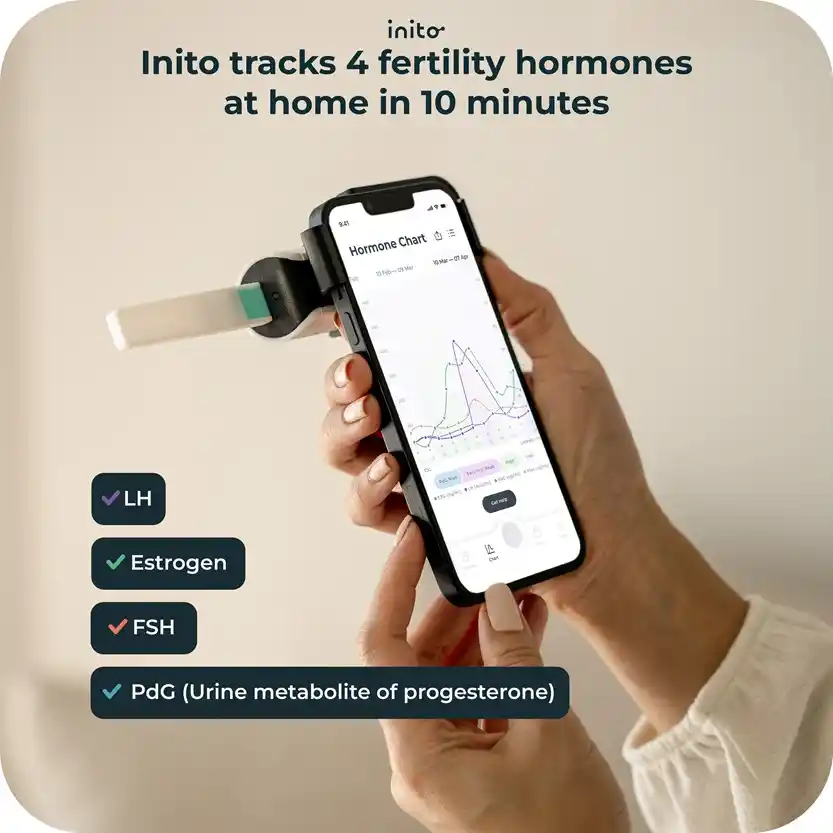
Inito measures estrogen, LH, and FSH to track your fertile window and PdG to confirm ovulation, all on a single test strip. You get the full picture of how your hormones fluctuate throughout the month, including your ovulation date, and the date of your next period!
Know your chances of Ovulation!
Take our ovulation quiz to understand how your hormone patterns and
lifestyle factors may affect your chances of ovulating
- Your period is late due to causes other than pregnancy
Chemical pregnancy
Chemical pregnancy is an early pregnancy loss that happens within the first five weeks of pregnancy.
It is a type of miscarriage where the embryo stops developing soon after implantation.
Chemical pregnancies often occur due to chromosomal abnormalities, and they make up 8-33% of pregnancies. These pregnancies are particularly challenging because the only noticeable sign is a delayed and heavy period. So, you may not even recognize you had a chemical pregnancy and interpret the condition as a delayed period.
Read More: 6 Helpful Tips for Getting Pregnant After Chemical Pregnancy
Anovulation

Anovulation is the absence of ovulation. This means an egg is not released from the ovary.
Ovulation is an essential step in the menstrual cycle, so hormonal imbalances can occur in its absence.
For instance, in the absence of ovulation, the corpus luteum does not form. If the corpus luteum does not form, then progesterone levels fall.
Since progesterone stabilizes the endometrial (uterine) lining when estrogen thickens it with a blood supply, declining progesterone can cause an imbalance in estrogen and progesterone levels. This means the endometrial lining keeps growing, and causes heavy bleeding when it cannot sustain itself.
Here’s why this can be an is
Since progesterone (and estrogen) helps stabilize the uterine lining and
To be more specific, both estrogen and progesterone maintain the endometrial lining. Estrogen causes it to grow thick and rich with blood supply. However, there can be too much of a good thing. This growth is delicate and unstable.
This is where progesterone comes in! It helps stabilize the uterine lining so it’s not as fragile.
There needs to be a fine balance between estrogen and progesterone. And if progesterone levels are low then estrogen will go unchecked.
PCOS is the number one cause of anovulation. It causes the ovaries to produce an excessive amount of androgen hormones, resulting in irregular periods, acne, weight gain, excessive body hair growth, and anovulatory infertility.
Other causes of anovulation include stress, abnormal body weight, and lifestyle habits like diet and physical activity.
To rule out anovulation as a possible cause of late periods, consider using the Inito Fertility Monitor.
Inito measures four fertility hormones in your urine on a single test strip: FSH, LH, and estrogen to track your fertile window and PdG to confirm if you’ve ovulated.
Stress
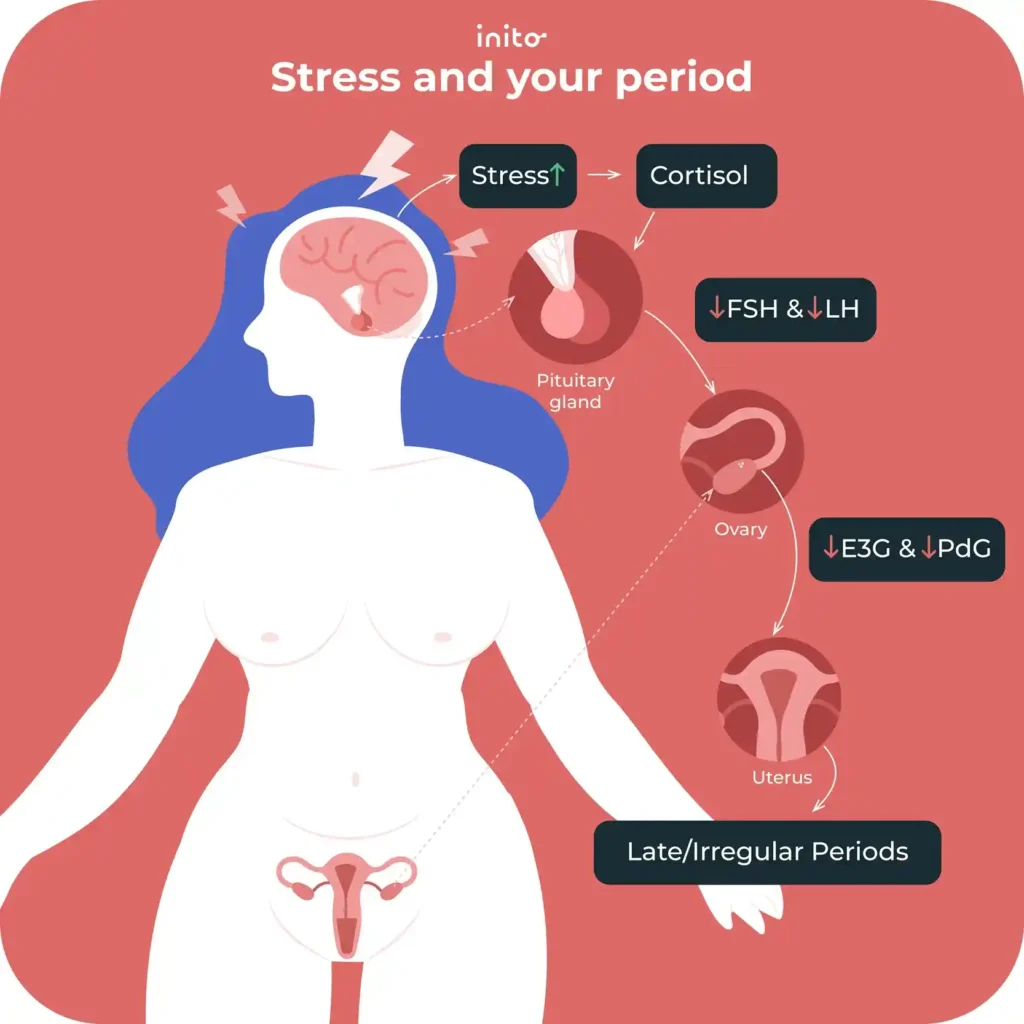
Stress can negatively influence your body in many ways. And its negative effect on your menstrual cycle is no exception.
Stress releases cortisol, the stress hormone, which can interfere with the production of reproductive hormones, especially progesterone. This is because cortisol and progesterone are both made from the same compound –pregnenolone.
Increased cortisol = decreased progesterone.
Stress may also inhibit the release of GnRH and LH and reduce the amount of estrogen. GnRH and LH are required for ovulation, so if their production is delayed, ovulation will also be delayed. Late ovulation equals a delayed period.
Hypothyroidism
Hypothyroidism or an underactive thyroid gland can cause absent periods or late periods. It happens when your thyroid gland does not produce sufficient hormones, slowing down your metabolism.
This condition directly affects the production, transportation, and elimination of estrogen and progesterone. As a result, it can lead to ovulation issues and irregular cycles.
Excessive exercise

Exercise is great for you in moderation. In fact, vigorous exercise around 30-60 minutes per day can help reduce the risk of anovulatory infertility. However, excessive exercise can cause menstrual irregularities, especially when combined with inadequate nutrition.
Excessive exercise can mess with the way your body controls ovulation. One reason this happens is that exercise affects the Hypothalamic-Pituitary-Adrenal (HPA) axis, the body’s main stress response system. Over-exercising makes the HPA axis more active, which can throw off the hormones that control your menstrual cycle.
For instance, increased activity of the HPA axis causes more cortisol production, which may decrease Follicle-Stimulating Hormone (FSH) and Luteinizing Hormone (LH) production.
When FSH and LH are out of whack, ovulation is adversely affected. As a reult, it alters when you get your period.
Also, intense exercise over time reduces the body’s fat amount. Low body weight results in lower estrogen levels, which impairs menstrual cycle regularity.
What should I do next?
As you can see, your period may be late for many reasons. So, what are your next steps?
There is the possibility that you took a pregnancy test too early. Wait another week to see if your period comes. If you don’t get your period, take another pregnancy test to rule out pregnancy. Reach out to your doctor if you still don’t have a period within 6 weeks of your previous cycle.
If you want a better way to track your cycles consider using the Inito Fertility Monitor to track your hormones. That way you will know when you ovulate and can accurately predict your next period.

FAQs
Your period could be 10 days late due to hormonal imbalances because of underlying health conditions or lifestyle factors. Causes include hypothyroidism, PCOS, stress, and excessive exercise.
You may consider consulting your doctor if you haven’t had a period in more than 6 weeks and you have gotten a negative pregnancy test. There may be an underlying health condition.
This could be due to a hormonal imbalance, a change in your lifestyle, or an underlying health condition. It’s normal to have variability in your menstrual cycle. 69% of women report their menstrual cycles vary by up to 6 days! However, if you haven’t had a period in more than 6 weeks, then you may want to reach out to your healthcare provider.
Was this article helpful?
- Types of reproductive disorders in underweight and overweight young females and correlations of respective hormonal changes with BMI – PMC
- Menstrual Cycle Length and Patterns in a Global Cohort of Women Using a Mobile Phone App: Retrospective Cohort Study
- Pregnancy | FDA
- Anovulatory Bleeding – StatPearls – NCBI Bookshelf
- Etiological evaluation of repeated biochemical pregnancy in infertile couples who have undergone in vitro fertilization
- The Normal Menstrual Cycle and the Control of Ovulation – Endotext – NCBI BookshelfEffect of Stress on the Activity of the Hypothalamic-Pituitary-Gonadal Axis: Peripheral and Central Mechanisms1 | Biology of Reproduction | Oxford Academic



